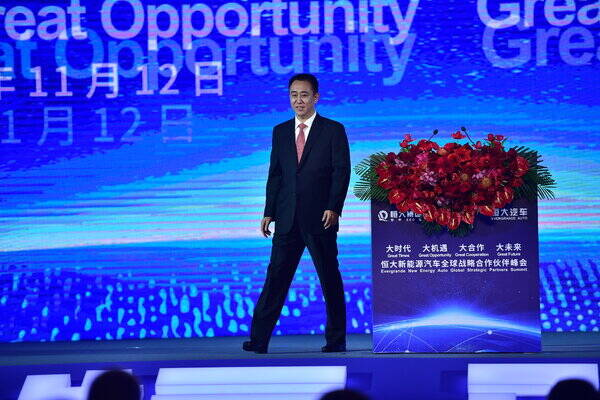纽约时报中文网 - 中英对照版-中英中国证监会称恒大财务造假许家印被终身禁入证券市场
March 20, 2024 2 min 420 words
undefined
China Evergrande Group exaggerated its revenue by more than $78 billion and committed securities fraud over two years before its spectacular collapse in 2021, a top Chinese regulator said.
中国的最高监管机构称,在2021年崩盘前,中国恒大集团两年来虚增收入5641.46亿元,并涉嫌犯下债券欺诈行为。
The China Securities Regulatory Commission accused Hui Ka Yan, the founder of Evergrande, of “making decisions and organizing fraud,” the company reported in a filing to the Shanghai and Shenzhen stock exchanges on Monday night.
恒大周一晚间向上海和深圳证券交易所提交的文件显示,中国证监会指控恒大创始人许家印“决策并组织实施财务造假”。
Mr. Hui was fined $6.5 million and banned from China’s financial markets for life. Xia Haijun, a former chief executive, was fined $2 million and also banned from financial markets, along with several other executives. The company’s main onshore unit, Hengda, was fined $580 million.
许家印被罚款4700万人民币,并被终身禁止进入中国证券市场。前首席执行官夏海钧和其他几名高管被罚款1500万人民币,并被禁止进入证券市场。该集团主要境内子公司恒大被罚款41亿人民币。
The New York Times reported in December that questionable accounting and poor oversight led to Evergrande’s demise. Over the years before it defaulted on its debt, Evergrande had been treating money it received for apartments as revenue even though at times it had not built those apartments, the Times reported.
《纽约时报》去年12月报道称,存在问题的会计和监管不力导致了恒大的垮台。据时报报道,在债务违约前的几年里,恒大一直将其收到的购买公寓的资金视为收入,尽管有时它并未建造这些公寓。
In the company filing, Hengda laid blame solely on Mr. Hui. As chairman of Evergrande, Mr. Hui was in charge of all the company’s real estate business and “instructed other personnel to falsely increase the performance,” the company wrote.
在公司文件中,恒大将责任完全归咎于许家印。该公司写道,作为恒大董事长,许家印负责公司所有房地产业务,并“授意其他人员虚增恒大地产年报业绩”。
He did so, it added, “with exceptionally bad means and exceptionally serious circumstances.”
声明补充说,他这样做“手段特别恶劣,情节特别严重”。
Regulators found that Hengda inflated its revenue by nearly $30 billion in 2019 and by $48.6 billion in 2020. Then it raised money in financial markets based on the falsified numbers.
监管机构发现,恒大2019年虚增收入2139.89亿元,2020年虚增收入3501.57亿元,然后根据伪造的数据在金融市场筹集资金。
The development is yet another blow to Evergrande’s already shattered reputation. Once an emblem of China’s entrepreneurial success and ambition, Evergrande is now a name that angers homeowners across China.
事态发展对恒大本已破碎的声誉来说是又一次打击。恒大曾经是中国创业成功和雄心的象征,如今却成为了令中国各地房主愤怒的名字。
Evergrande has become the most visible example of China’s real estate crisis. Its failure, under $300 billion of debt, heralded the largest wave of property defaults in modern history. China’s top leaders are now trying to wean the $18 trillion economy off construction, a sector that once contributed to a third of the country’s growth and employed much of its workers.
恒大已成为中国房地产危机最明显的例子。该公司负债2.43万亿元,其失败预示着现代历史上最大规模的房地产违约浪潮。中国最高领导人现在正试图让中国这个18万亿美元的经济体摆脱对建筑业的依赖,这个行业曾经贡献了中国经济增长的三分之一,并雇用了大部分工人。
After it defaulted, Evergrande tried to work with private lenders and international investors who had lent it tens of billions of dollars overseas. Last summer, the company reported that it had made progress toward a restructuring deal.
违约后,恒大试图与海外曾向其借出数百亿美元资金的私人贷款机构和国际投资者合作。去年夏天,该公司报告称重组交易已取得进展。
Then, in September, Mr. Hui was detained by authorities and all restructuring talks came to an end.
随后,9月,许家印被当局拘留,所有重组谈判告吹。

